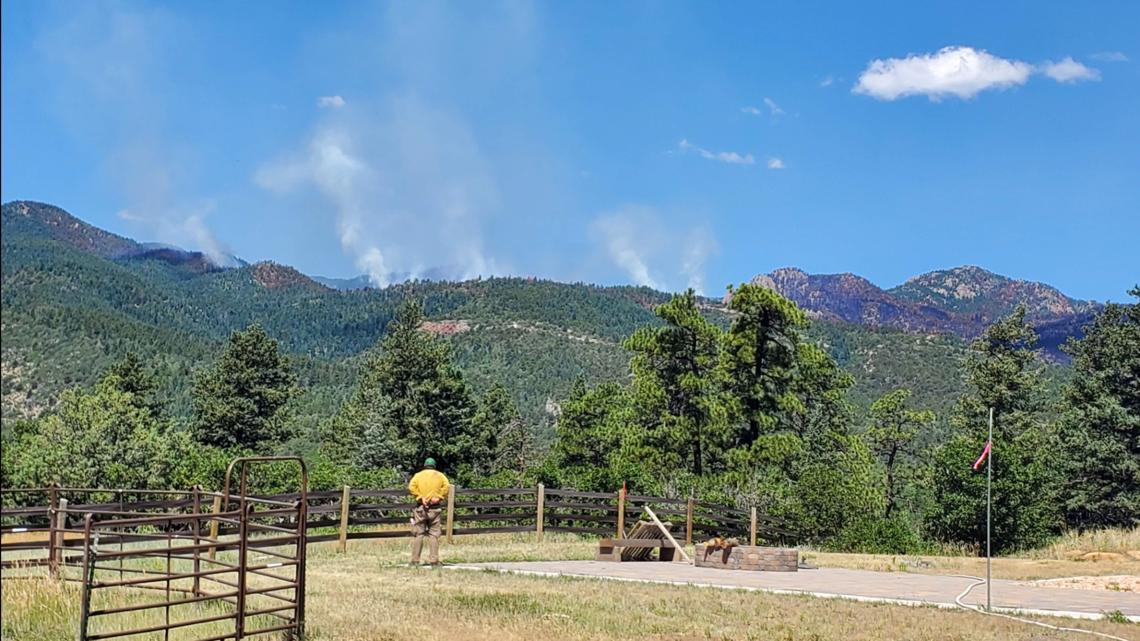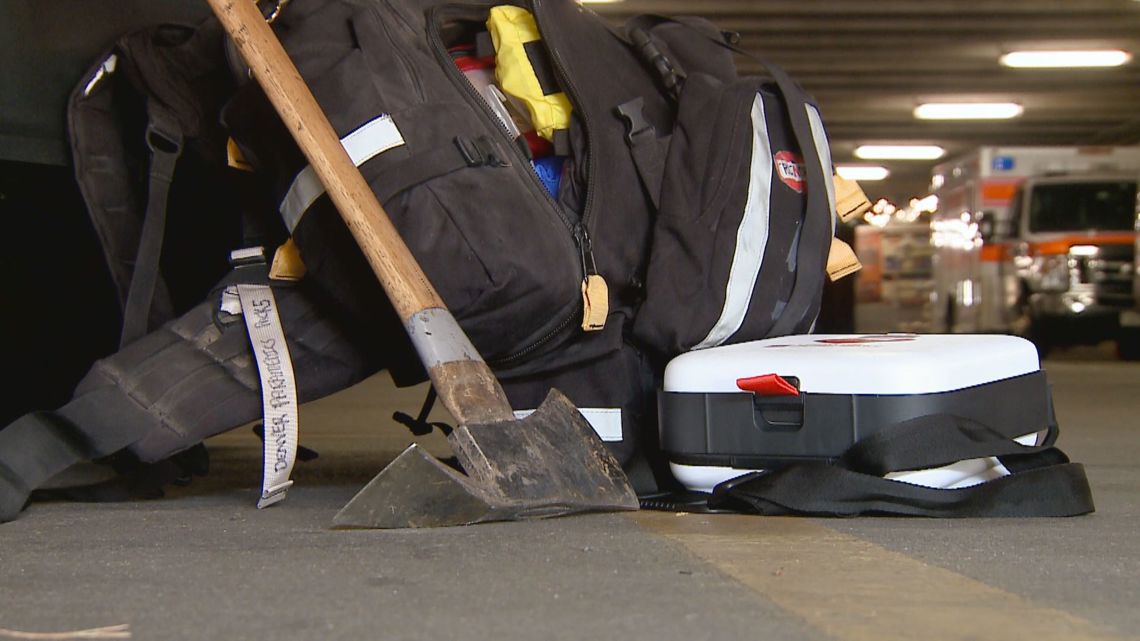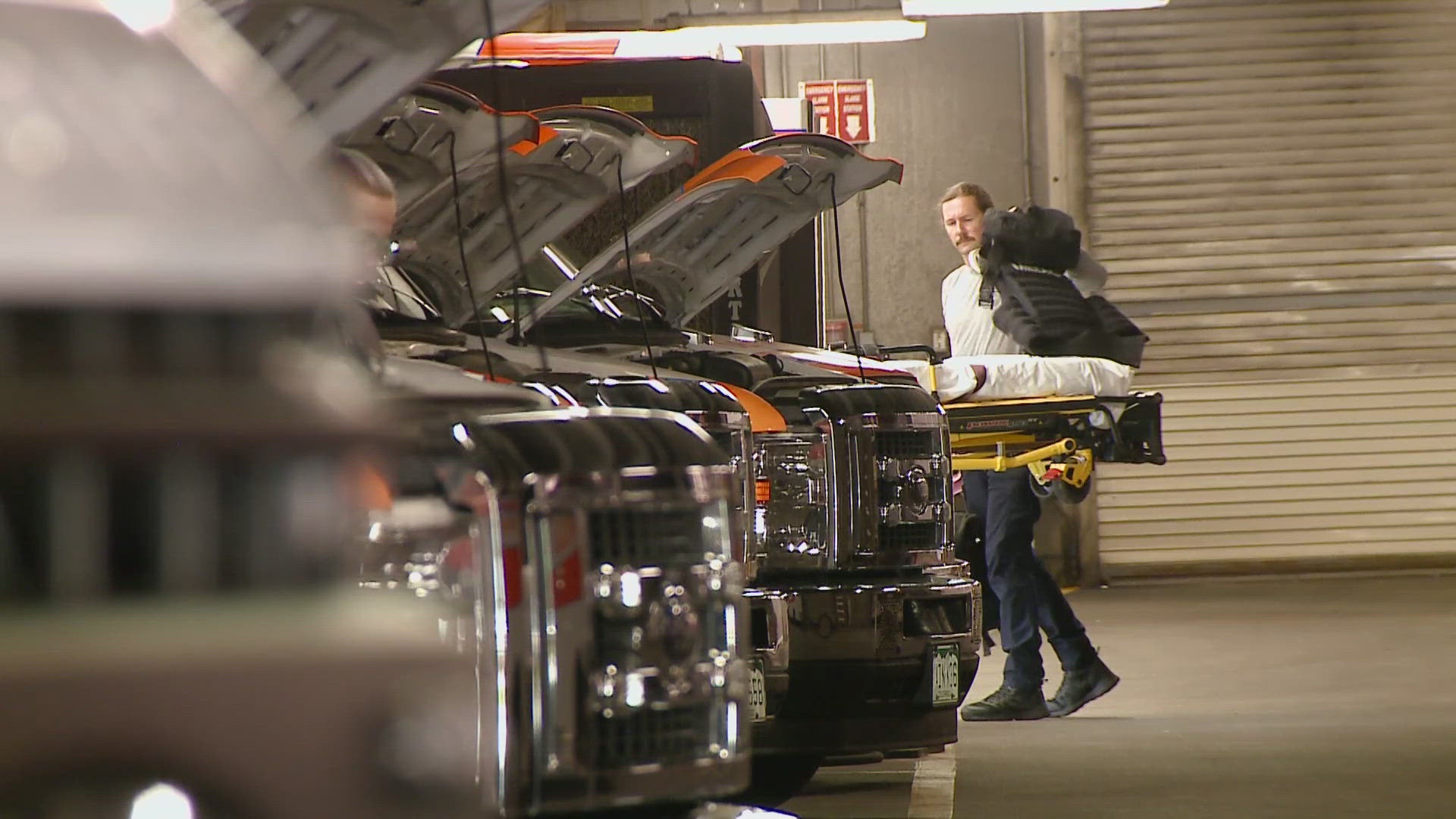DENVER — When a wildfire starts, alongside the firefighters are medical professionals, ready to help in case a firefighter gets hurt.
At Denver Health, 16 paramedics and eight communications officers serve on the Wildland Team. They're ready to jump in on the fire line when they're called up through the National Interagency Fire Center.
"We’re ready for it. We’re prepared for it," said Logan Opalinski, a paramedic with Denver Health and fire line paramedic with the Wildland Team. "We obviously have the ability and the structure to treat and transport really anything that we need to."
"There's been a couple where people have been struck by trees or some dehydration, electrolyte issues, heatstroke," Opalinski said.
Opalinski was sent down to Pueblo weeks ago to help crews battling the Oak Ridge Fire, embedding with the people on the front lines of the fire.


"We're there to save the firefighters' lives and God forbid, any civilian that would be left around," Opalinski said. "We’re all on the fire line with those medics, which is why we carry full packs and gear and emergency shelters. And we can help out as necessary with firefighting operations if critical incidents arise. But it’s understood on the teams that we’re there ‘in case.’ We’re a big ‘in case’ factor.”
On their backs, they carry axes, AEDs and the equipment they'll need to save a life.
"We can go with hot shots. They're elite. They're essentially athletes. We can go with smoke jumpers. You can also be doing structure protection with someone who is driving the water tender," said Jay Starzynski, a lieutenant with the Denver Health paramedic division who co-manages Denver Health's Wildland Team.
Starzynski said many firefighters and EMTs have basic medical knowledge to offer basic care. His team's experience on a scene can be lifesaving.
“You get an experienced paramedic provider who is doing this full-time in an inner city with thousands of patient experiences and patient encounters and transferring that over to the austere remote environment," Starzynski said. "So it’s a little different. There’s plenty of EMTs that are on the fire line and they’re definitely necessary. They’re extremely valuable. But their level of training is less than a paramedic, so the paramedics have a more intimate understanding of anatomy, physiology. They do paramedic level calls and ultimately, their critical decision making is honed by virtue of being in a busy, urban environment like Denver Health. And we’re able to transfer that out to the fire line.”


Right now, two Denver Health paramedics are helping on fire lines - one in Oregon and one in Wyoming. One of their communications officers is playing a critical role in helping fight the Alexander Mountain Fire west of Loveland.
"She's working an expanded scope, which means she's actually processing logistics and equipment and personnel to be sent to the fire," Starzynski said. "So requests come into the center, they organize a national database of responders and then pair up a need with the resource."
When wildfires like we've seen the past week kick up, Opalinski said he wants to be there to help. But until he gets the call, all he can do is wait.
"We're always happy to go, always willing to go. We just have to wait for the call," he said.

